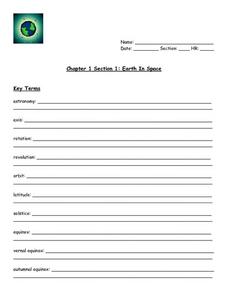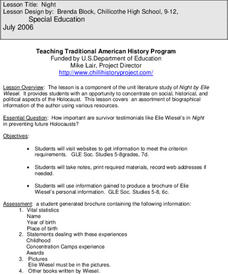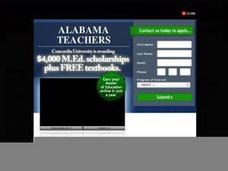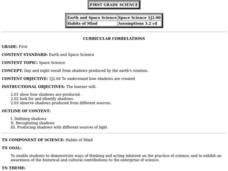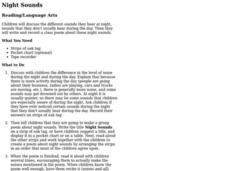Speak Truth to Power
Elie Wiesel: Speaking Truth to Genocide to Power
Invite your learners to discover the efforts of Night author Elie Wiesel to promote awareness of genocide in the world. After watching and reading an interview of Elie Wiesel, high schoolers work to create a living Holocaust museum by...
Curated OER
Anti-Semitism Workshop
Originating from the Yad Vashem Holocaust Memorial Museum in Jerusalem, here is a resource to support your world historians in their study of World War II, the Holocaust, your cultural scholars learning about anti-semitism, or your...
Curated OER
Required Annotations and the Dialectical Journal
Does your class annotate to deepen their understanding of a text? Before they jump into Night by Elie Wiesel, have them practice annotating with a short excerpt. Provided here is a guide to annotation and a two-page excerpt on the...
Curated OER
Night Compare Contrast
Using a constructivist approach and a graphic organizer, small groups work together to begin a paper, comparing and contrasting the novella Night and the movie Life is Beautiful. Assuming that your learners have studied both of these...
Curated OER
The Holocaust in Literature: Fiction and Non-Fiction
Using literature is an effective way to address the Holocaust with your students.
Spark Notes
Night by Elie Wiesel: Study Guide - Mini Essays
In this online interactive literature worksheet, students respond to 9 short answer and essay questions about Elie Wiesel's Night. Students may check some of their answers online.
Curated OER
Night Eyes
Fifth graders identify nocturnal animals based on specific characteristics. In this animals lesson, 5th graders observe an area at night using flashlights. Students record their findings and discuss as a group.
Curated OER
Night Lesson Plan: Stereotypes and Scapegoats
Young scholars read the novel Night by Holocaust survivor Elie Wiesel and complete related activities. In this novel analysis instructional activity, students prompt write and discuss the answers. Young scholars take notes on stereotypes...
Curated OER
Earth in Space
In this reason for the days and nights on earth worksheet, students study the reasons the Earth has days and nights by answering 28 questions about earth's rotation, the equator, the relationship between the sun and moon, and the earth's...
Curated OER
Measure
Students are asked what activities or things that they do each day. They are then asked do you do that in the morning, afternoon, or night? Students are then asked which of those things do you do first, second, third, and etc.
Curated OER
Night
Students read Night by Elie Wiesel, examine importance of survivor testimonials like Wiesel's in preventing future Holocausts, research biographical information online about Wiesel, and create author brochure including vital statistics,...
Curated OER
The Final Solution
Students distinguish between concentration, labor and death camps, describe conditions in concentration camps, read and discuss Night, by Elie Wiesel, and describe methods Nazis used to disguise true purpose of death camps and...
Curated OER
Magic Squares for Shakespeare's Twelfth Night, Act II, scene 5
Readers of Shakespeare’s Twelfth Night use a magic squares matrix to match vocabulary words from Act II, Scene 5 with their definitions. An answer key is provided.
Curated OER
Background Knowledge and Making Connections
Students investigate what they know about the Holocaust. In this historical perspectives lesson, students complete KWL charts about Hitler and the Holocaust and create found poems on the topic prior to reading Wiesel's "Night."
Curated OER
Comparing and Contrasting Fiction and Nonfiction Using Graphic Organizers
Students compare and contrast fiction and non-fiction selections. In this writing skills lesson, students use different forms of graphic organizers to compare "The Three Little Pigs," to Wiesel's Night.
Curated OER
Interative History Notebook Mini-lesson
Students respond to Holocaust literature. In this interactive history lesson, students select quotes from chapter 1 of Elie Wiesel's Night and reflect on their meaning as they record their thoughts on poetic, prose, comic. or picture form.
Curated OER
When (Seasons, Day, or Night)
Practice identifying the setting with a reading activity. Kindergartners find the setting of a story by observing when the story takes place. They read the book Look! Snow! by Kathryn O. Galbraith and decide in which season the story...
Curated OER
There Are So Many Stars
Students explore the night sky. In this astronomy lesson, students discover a song about the stars in the sky and participate in a flannel board activity pertaining to the song.
Curated OER
Sunrise, Sunset: Quickly Go the Days
Students explore the concept of daylight. In this daylight lesson, students compare the amount of daylight on a particular day in Anchorage compared with daylight where they live. Students color maps of the US according to amount of...
Curated OER
What Can You See in the Sky?
In this objects in the sky activity, students will compare what they can see in the sky during the day and during the night. Students will complete 8 fill in the blank statements.
Curated OER
Day and Night
First graders study that day and night result from shadows produced by Earth's rotation. Students work to show how shadows are produced, look for and identify shadows and observe shadows produced from different sources.
Curated OER
Day And Night
First graders examine how the earth experiences day and night by using a flashlight and a globe as a model.
Curated OER
Let's Think About Day and Night
Students explore day and night and the relationships between the Earth, the sun and the moon. They discuss the ways in which the sun and moon help us. They watch a short video that helps illustrate these concepts.
Curated OER
Night Sounds
Students listen and discuss the sounds they heard at night. They write a class poem about those sounds at night. They keep a chart on their desk for ideas. The poem is read aloud to the class when it is finished.










